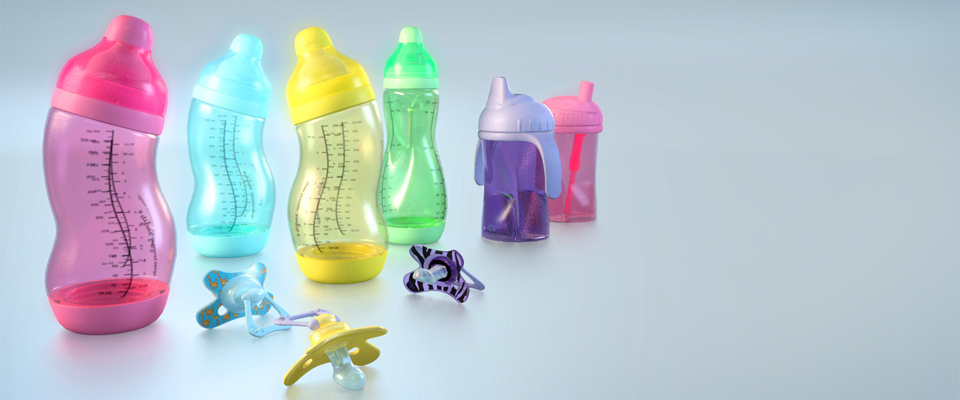Is your “EA-free” baby bottle really EA-free and safe for your child to use?
That question is confronting a federal judge in Texas, where Eastman Chemical Company is suing two labs it claims misrepresented the safety of Eastman plastic.
EA is “estrogen active.” Not a good thing. EA chemical agents mimic natural estrogen. When ingested, they become endocrine disruptors and play tricks on the body at the cellular level, which can lead to health problems ranging from infertility in men to breast cancer in women.
| Why would Eastman ask a federal judge to suppress an article that gives its Tritan resin a clean bill of health? |
The lawsuit filed in Austin involves claims made by a private lab founded by a University of Texas biology professor and several other scientists. As detailed in the June issue of The Washington Spectator, Eastman claims Tritan™ resins, which it sells to makers of consumer plastics, are EA-free.
When CertiChem labs in Austin detected estrogenic activity in three Tritan resins (and bottles made from Tritan) and published the findings in a National Institute of Health journal, Eastman sued.
Information about the lawsuit is not exactly accessible.
Though federal court procedures are open to the public, Eastman has filed numerous motions requesting District Judge Sam Sparks to seal documents that might pose a threat to the company’s reputation. The judge has agreed, but with evident reluctance:
But you can’t file a lawsuit, asking for millions of dollars, then come in and say, there may be something that they can find and they’re going to say something ugly. People say things ugly all the time, and if they say it erroneously, then you’ve got a cause of action against them. If you say it legally, you don’t have a cause of action.
Some of the “ugly” Eastman is trying to conceal pertains to an article published in yet another journal: Food and Chemical Toxicology. Written by a Florida toxicologist, the article describes tests conducted by labs working with Eastman, which found that Tritan is free from estrogenic activity.
Why would a company suppress information about an article that gives its product a clean bill of health?
Because Eastman paid the author, Dr. Thomas Osimitz, $10,000 to write it — and to coordinate the contributions of six co-authors who were also compensated by Eastman.
Here’s how Eastman attorney Rick Harrison described Eastman’s problem to the judge:
“For instance, with the journal there are statements by the five [sic] authors that they were funded by Eastman in participating and writing the paper. Those have never been made public, and, for whatever reason, the scientific journal that published the paper did not make any mention that Eastman funded the study. So if those letters are allowed to go public, it will be in the context of, well, Eastman paid for this, but the journal says they didn’t, or doesn’t say anything, so somebody’s hiding something here.”
It appears there’s more to hide.
According to court documents, Eastman not only paid for the article, Eastman’s chief toxicologist, Dr. James Deyo, worked closely with Dr. Osimtiz in shaping and editing the paper. (I called Deyo twice, he has not responded.) Eastman also provided all the test data, which Osimitz did not question.
Which seems like a lot to disclose.
Was it disclosed?
| It appears there is more to hide. |
The letters that concerned Eastman’s attorney were submitted to Food and Chemical Toxicology prior to publication of the article on February 12. They had to be. The journal, and its owner Elsevier (a world leader in the publication of academic journals of science, medicine and technology), require full disclosure in compliance with the agreed-to-standards of academic publishing.
And according to Food and Chemical Toxicology editor A. Wallace Hayes, all articles are submitted electronically and cannot be conveyed until the disclosure box if completed.
The “Conflict of Interest” statement at the end of the published article reads:
“The authors declare there are no conflicts of interest.”
In an e-mail response to my question, Hayes replied: “The authors replied that they had no conflict.”
While the disclosure controversy is a tempest in an academic teapot, within it is a flood of scientific information directly linked to the public interest.
Summer is upon us. When your child drinks from a plastic baby bottle or sippy cup left in the June sun, is she consuming a lechate infused with synthetic estrogen that influences human physical development from the fetal stage through sexual maturity? Or is the bottle “EA-free” as advertised.
A question that most parents would want answered.
Lou Dubose is the editor of The Washington Spectator.




0 Comments